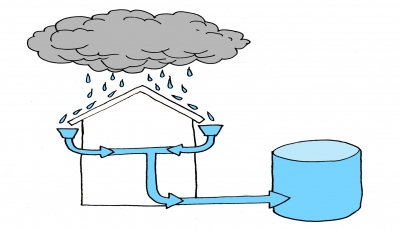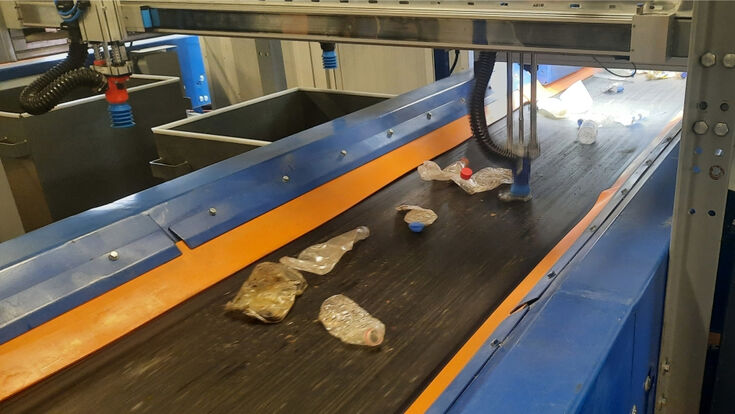Exactly how to Select the Best Reclaim Waste Melbourne Service for Your Liquid Waste Demands
Exactly how to Select the Best Reclaim Waste Melbourne Service for Your Liquid Waste Demands
Blog Article
Fostering Source Efficiency and Environmental Management With Liquid Waste Removal Programs
In the world of ecological stewardship, the management of liquid waste stands as an important juncture where source efficiency and environmental management assemble. Liquid waste elimination programs play a pivotal role in protecting our communities and ensuring sustainable growth techniques. By meticulously attending to the disposal of fluid waste, sectors and areas can not just mitigate possible threats but also unlock opportunities for recycling and repurposing valuable resources. As we navigate the complexities of waste administration in a quickly progressing world, the synergy between cutting-edge technologies, strict laws, and forward-thinking strategies becomes increasingly paramount. With a lens of aggressive involvement and calculated insight, the landscape of liquid waste monitoring unveils a tapestry of difficulties and opportunities that beckon us to discover the path in the direction of a greener and even more sustainable future.
Importance of Liquid Waste Removal
The value of liquid waste removal depends on its important duty in maintaining ecological wellness and safeguarding public health. Fluid waste, otherwise correctly managed, can pose major risks to ecosystems, water sources, and human health and wellness. Via effective removal procedures, unsafe materials such as toxins, microorganisms, and chemicals are stopped from contaminating the setting and triggering harmful results.
Correct fluid waste elimination likewise helps in protecting against the spread of illness and decreasing the possibility for groundwater contamination. By safely throwing away liquid waste, the threat of waterborne illnesses and pollution-related health and wellness problems is considerably decreased - Reclaim Waste. Additionally, reliable elimination practices add to preserving the total cleanliness and visual appeals of areas, consequently boosting the quality of life for homeowners
In addition, liquid waste removal plays an essential role in sustaining sustainable advancement and guaranteeing conformity with ecological laws. By sticking to proper waste monitoring methods, sectors and services can reduce their ecological impact and show company obligation. Inevitably, purchasing robust fluid waste removal programs is vital for advertising environmental stewardship and fostering a healthier, more secure future for all.

Advantages of Reliable Disposal
Effective disposal of fluid waste not just safeguards environmental health and wellness and public wellness however also produces numerous advantages that extend beyond prompt control steps. One essential advantage of reliable disposal is the decrease of pollution in water bodies and dirt. By correctly managing fluid waste, the threat of contamination decreases, protecting environments and protecting biodiversity. In addition, reliable disposal methods add to resource preservation. Via procedures like recycling and energy recuperation, valuable sources can be drawn out from fluid waste, promoting sustainability and decreasing the strain on raw products. Additionally, adopting efficient disposal techniques can result in set you back financial savings for communities and businesses. By maximizing waste management processes, companies can improve operations, lessen disposal costs, and possibly produce earnings via the sale of recycled materials. On the whole, the benefits of effective fluid waste disposal are complex, encompassing ecological defense, source efficiency, and financial benefits.
Technologies for Waste Therapy
Using advanced modern technologies for waste treatment plays a crucial role in making sure the reliable administration and risk-free disposal of liquid waste. One of the key technologies employed in fluid waste therapy is organic therapy.
Additionally, thermal treatment methods such as incineration can be utilized for the total devastation of hazardous parts in liquid waste. On the whole, the assimilation of varied therapy innovations makes certain thorough and ecologically friendly monitoring of fluid waste.
Function of Regulations and Conformity
In the realm of liquid waste monitoring, adherence to regulatory frameworks and conformity criteria is vital for securing environmental wellness and sustainability. Laws play a vital role in controling the proper handling, therapy, and disposal of liquid waste to stop harm to communities and human health. By developing clear guidelines and criteria, governing bodies make sure that companies and people included in liquid waste management operate in an environmentally accountable way.
Compliance with these regulations is not only a lawful demand but likewise a moral commitment to protect the atmosphere for future and current generations. It entails applying finest techniques in waste collection, disposal, transportation, and therapy to reduce ecological effect and advertise source effectiveness. Non-compliance can result in fines, lawful activity, and reputational damage for organizations, highlighting the importance of upholding governing criteria.

Future Trends in Waste Monitoring

Another key click resources trend in waste monitoring is the fostering of sophisticated data analytics and expert system to maximize waste collection paths, boost sorting procedures, and enhance overall functional efficiency. These innovations make it possible for waste monitoring companies to make data-driven decisions, resulting in cost financial savings and ecological advantages.
Furthermore, there is a growing emphasis on the advancement of decentralized waste management systems, such as onsite therapy centers and mobile waste handling systems. These systems provide flexibility and scalability, enabling a lot more reliable waste handling in varied environments.
Final Thought
In final thought, cultivating resource efficiency and environmental management with liquid waste removal programs is vital for lasting development. Reliable disposal techniques, progressed technologies for waste treatment, and stringent guidelines play vital duties in decreasing ecological effect. Looking in advance, constant advancement and improvement in waste monitoring practices will be necessary for resolving the growing challenges of liquid waste disposal.
In the world of ecological stewardship, the management of liquid waste stands as an important time where source performance and environmental defense converge (Liquid waste removal).Using sophisticated innovations for waste therapy plays a critical role in making sure the efficient monitoring and safe disposal of fluid i thought about this waste.In the realm of liquid waste monitoring, adherence to governing frameworks and compliance requirements is extremely important for protecting ecological health and wellness and sustainability.In moved here verdict, cultivating source efficiency and environmental security with liquid waste removal programs is essential for sustainable advancement. Looking ahead, continual technology and improvement in waste administration practices will certainly be necessary for resolving the expanding challenges of fluid waste disposal
Report this page